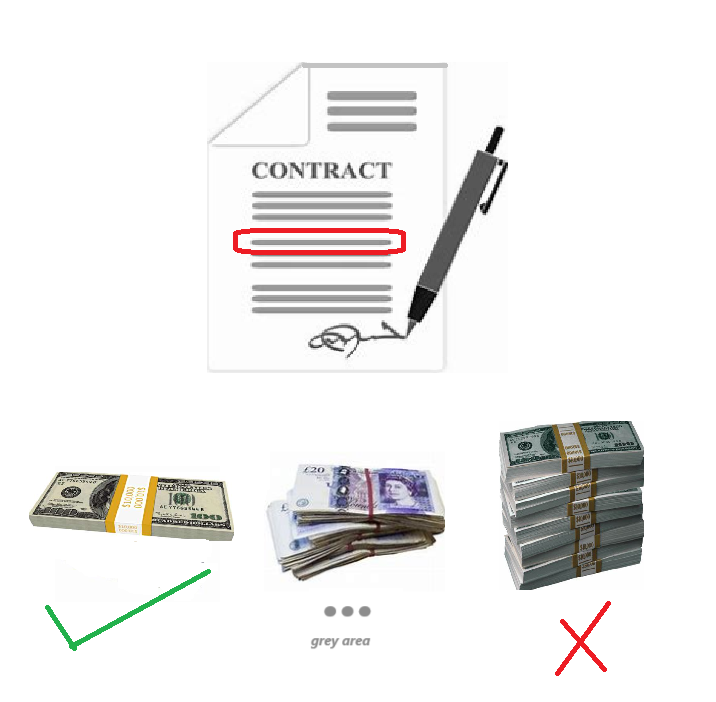Jobson v Johnson, [1989] 1 WLR 1026
Citation:Jobson v Johnson, [1989] 1 WLR 1026
Link to case on WorldLII (reference).
Rule of thumb:How can you escape a liquidated damages clause? If the party seeking to escape can provide prima facie evidence that it is grossly excessive then it does not have to be paid; if the party with clause can provide accounting evidence to justify how the figure has been calculated then it has to be paid.
Judgment:
In this case the Court set the test that the amount claimed must be objectionable, unconscionable and excessive in order to be considered a “penalty”, ‘a transaction must be just as objectionable and unconscionable in the eyes of equity if it requires a transfer of property by way of penalty on a default in paying money as if it requires payment of an extra, or excessive, sum of money’, Lord Justice Dillon at 1034

Warning: This is not professional legal advice. This is not professional legal education advice. Please obtain professional guidance before embarking on any legal course of action. This is just an interpretation of a Judgment by persons of legal insight & varying levels of legal specialism, experience & expertise. Please read the Judgment yourself and form your own interpretation of it with professional assistance.

